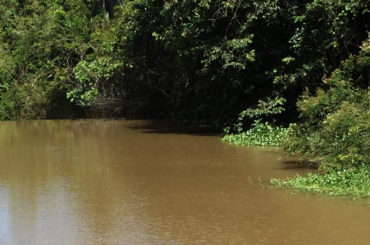The city of Moreno, located in the region of Recife, state of Pernambuco (Brazil), supplies water to over 44.000 people across the river Jaboatao. Its capture is performed in the Treatment Station (WTS), which collects water from the river and turns it into unfit for consumption.
Moreno water purification station
Context

As the water of this river is very muddy, to have a good quality it must go through a coagulation process to remove suspended solids. After this process, water should undergo to a chlorination phase, whereby it is disinfected and drinkable.
At this second point, the chlorination one, the water management company of this area (COMPESA) does not detect problems of efficiency of the process, so decides to act in the coagulation process, as it is seen a low efficiency in dissolving alumina sulphate coagulant.
After studying the case, it appears that the agitators used do not work properly and need a long period of agitation to leave the dissolution of the coagulant ready to be dosed. In addition to problems in the preparation of alumina sulphate, they have a high coagulant consumption due to deficiencies in the installation design which produces a product overdose.
ITC / FluidFeeder Solution
Once studied the case, ITC and the local distributor FluidFeeder propose two changes to the water purification system:
- On the one hand, replacing the existing agitator for a high performance ITC agitator with centrifugal turbine to achieve a perfect mixing. By using this new agitator, the quality of the coagulant dissolution is improved, and the operation time is reduced which reduces energy expenditure significantly.
- On the other hand, the design of dosing circuit is reviewed and the dosing pumps are changed to a double head MF. Diffuser valves, which also have an anti-siphon function, are installed at the injection points.

With all these changes, not only the mixing time is shortened and the quality of alumina sulphate dissolution improved, but also it is reduced the consumption of coagulant by means of a precise dosing.
The success achieved in the water purification system at Moreno’s Water Treatment Station, has led ITC and Fluidfeeder to carry out similar actions in other treatment stations of Pernambuco state.
Location
- Moreno (Pernambuco, Brasil)
Key Points
- Low efficiency in coagulant preparation
- Unusual high consumption of coagulant
- More efficient agitators that reduce time and power consumption
- Redesign of the dosing installation and change of dosing pumps. Use of valves to prevent siphon effect
Used equipment
- Multifertic modular diaphragm dosing pump

- Mixer 1.3 turbine mixer for tanks up to 3,000 litres

- Diffuser injection valve ¾







